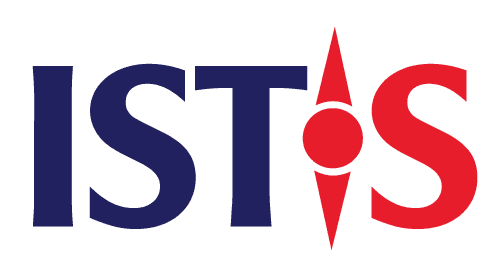The Starting Line
Starting a tech startup is never easy — but in an emerging market, it demands a mindset that goes beyond lean methodology and pitch deck polish. The rules that apply in Silicon Valley or mature economies often don’t translate neatly into countries where infrastructure gaps, unpredictable regulation, and fragmented consumer behavior define the day-to-day landscape.
In markets like Vietnam, Indonesia, or the Philippines, startup founders aren’t just building companies — they’re helping build the ecosystem itself. This means they may face challenges outside their core business: digital literacy among users, unstable payment systems, low trust in online services, or limited access to reliable data. Founders can’t assume there’s an “invisible layer” of systems that just work in the background — because often, there isn’t.
That’s why local context matters. A tech solution that succeeds in a high-income economy may completely miss the mark in a place where mobile-first behavior, cash-based transactions, and price sensitivity define the user base. Founders need to go deeper — to observe, listen, and build products that make sense not just functionally, but culturally and economically.
Moreover, fundraising pathways in emerging markets are narrower. There are fewer early-stage VCs, and grant programs or government support may come with layers of bureaucracy. Many startups must sustain early operations through consulting work, community partnerships, or even founder savings.
But this complexity also breeds opportunity. Founders who start with a strong understanding of local needs — and who embrace these realities rather than resist them — often create solutions with real staying power.
In emerging markets, building a startup is not just about scaling fast. It’s about learning fast, adapting faster, and solving what really matters — from the ground up.
How Limited Resources Push Smart Innovation
In mature startup ecosystems, early-stage companies often have access to capital, networks, and infrastructure that support fast experimentation. In contrast, founders in emerging markets operate under far tighter constraints — smaller teams, limited budgets, and unpredictable environments. But far from being disadvantages, these limitations often shape smarter, more adaptive innovation.
Take product development as an example. Without the luxury of a large engineering team or extended runway, many founders start by building minimal but highly functional MVPs — sometimes using no-code tools, scrappy prototypes, or direct user interviews instead of formal UX testing. These lean approaches allow them to test real behavior, not just assumptions.
Marketing follows a similar pattern. When paid channels are too expensive or ineffective, founders turn to community-led growth, offline-to-online activation, or WhatsApp and Facebook Groups to build traction. In Vietnam, it’s common to see early-stage startups gain momentum by tapping into trusted micro-communities — like niche professional forums, parent groups, or student clubs — where word of mouth still carries weight.
Limited resources also sharpen prioritization. Founders must focus on what actually drives value, not vanity metrics. Every hire, feature, or partnership must justify its cost. This urgency often results in tighter feedback loops, faster iterations, and better alignment with what users genuinely need.
In many ways, these constraints act like a forcing function: they drive founders to be closer to their customers, more thoughtful in execution, and quicker to adapt when something doesn’t work. Rather than chase global best practices, successful founders in emerging markets often build from first principles — grounded in local knowledge, tested by necessity.
This kind of innovation doesn’t just survive constraints. It’s shaped by them — and stronger for it.
Talent and Trust
In emerging markets, assembling a startup team isn’t just about hiring — it’s about building commitment in an environment where risk is real, and trust takes time. Unlike in more mature tech hubs, founders can’t rely on a deep bench of startup veterans or a strong employer brand to attract top talent. Often, they’re recruiting from scratch — convincing smart people to join a vision, not a salary package.
Many early-stage tech startups in Vietnam, for example, face intense competition from established tech firms, regional platforms, or outsourcing companies that offer stability. Founders must be clear not only about their mission but also about what kind of culture they’re building, how quickly people can grow, and what they’re willing to invest in long-term talent development.
Without access to expensive benefits or large salaries, successful founders often double down on internal learning culture — from in-house training to peer-to-peer coaching, even inviting advisors or mentors to fill temporary skill gaps. Team members wear multiple hats, and roles evolve with the company. This flexibility can be an asset — but it only works with trust, transparency, and shared belief in the bigger picture.
Beyond the team, trust must extend to partnerships, suppliers, and early users. In low-trust environments, credibility is built slowly — through consistent delivery, open communication, and real presence. Face-to-face meetings, referrals from mutual contacts, and relationship continuity matter more than pitch decks.
In short, building a startup in an emerging market often means building trust at every layer — not just for the product, but for the people and relationships that make the business possible.
The strength of a startup in these environments often comes down to this: a resilient, committed team that grows through shared belief — not external resources.
Why Speed Alone Doesn’t Win
In global startup narratives, speed is often glorified. Launch fast, fail fast, pivot faster. But in emerging markets, moving quickly without context can lead to costly mistakes — wasted resources, missed signals, and product-market misalignment. Here, speed matters less than purposeful iteration.
For tech startups in Vietnam and similar ecosystems, feedback cycles are often informal and fragmented. Users might not leave reviews or follow structured onboarding flows. Instead, insight comes from direct conversations, support messages, in-person usage, or behavioral patterns that aren’t obvious in the data. Successful founders build systems to listen early and often — not just to validate features, but to understand habits, pain points, and motivations.
Importantly, iteration in these markets is not just technical — it’s strategic. For example:
- A fintech startup may realize that trust matters more than speed in user onboarding, leading to a shift in tone, design, and customer service.
- A logistics platform might adjust its pricing or payment options after learning that many clients prefer cash-based transactions or flexible billing cycles.
In each case, the product evolves not just because the team is agile, but because it’s deeply grounded in context.
Iteration also requires knowing when to stop changing. Some founders get caught in endless pivots, hoping the next version will unlock growth. But in emerging markets, stability is also a signal — for users, partners, and potential investors. Once you’ve found what works, scaling thoughtfully matters more than constant reinvention.
The goal is not to move fast and break things — it’s to move with clarity, adjust where needed, and strengthen what works. In this way, iteration becomes a tool for progress, not a reaction to pressure.
What Emerging-Market Founders Teach the Global Startup Playbook
The early lessons from building a tech startup in emerging markets offer more than survival strategies — they represent a distinct philosophy of innovation. One shaped not by abundance, but by urgency, focus, and context. And as global markets become more uncertain and capital more selective, these lessons are increasingly relevant beyond the local stage.
Founders in Vietnam, for example, have had to solve infrastructure problems as they build products, find alternative growth channels where digital spending is still limited, and develop real customer intimacy in place of assumptions. These experiences build a kind of entrepreneurial resilience that isn’t easily taught in accelerators or modeled in spreadsheets.
Importantly, these founders are not building “lite” versions of global startups. They’re creating companies that solve deep, locally rooted problems — sometimes with solutions that global founders haven’t imagined. From digital payments adapted to cash economies, to edtech platforms that work in bandwidth-limited areas, these innovations reflect a fluency in constraint that’s increasingly valuable everywhere.
There’s also a mindset shift. Rather than chase unicorn status for its own sake, many founders in emerging markets measure success in durability — staying alive, staying useful, and steadily growing. They build with a longer view, often with a stronger connection to users and communities.
For global investors and ecosystem builders, the message is clear: don’t just look at emerging markets as new frontiers for capital — look at them as sources of capability, insight, and leadership. The lessons from early-stage founders here are not just reactive. They are strategic, transferable, and quietly reshaping what it means to build well.








